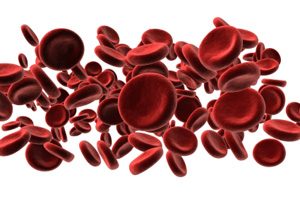Vitamin B12 Deficiency Treatment
The primary function of B12 vitamins is to assist other chemicals in the body with the production of red blood cells. Red blood cells carry oxygen throughout your system, so a lower number of these cells mean that your organs are receiving less oxygen – a condition known as vitamin B12 deficiency anemia. Symptoms of Vitamin B12 Deficiency Anemia include:
- Fatigue
- Feeling lightheaded
- Looking pale
- Sore tongue
- Bruising easily
- Bleeding gums
- Upset stomach leading to weight loss
- Diarrhea or constipation
If left untreated, vitamin B12 deficiency anemia can begin to affect your nervous system and even damage some of your nerve cells. This can lead to:
- Tingling in the fingers and toes
- Trouble walking
- Mood swings
- Depression
- Advanced mental deterioration resulting in memory loss, disorientation, and dementia
Who’s at risk?
We get most of our vitamin B12 by eating foods such as meat, eggs, and dairy products. This means that consuming a vegetarian diet without the proper supplements can put you at risk for developing a vitamin B12 deficiency. Expectant mothers who eat a vegetarian diet could also give their baby a B12 deficiency.
In some cases though, people who consume enough B12 can still develop the condition. This may be the result of a problem in their digestive system that doesn’t allow them to properly absorb these vitamins. Some digestive conditions that could lead to vitamin B12 deficiency anemia include:
- Pernicious Anemia – a condition where the stomach produces lower amounts of a protein called intrinsic factor, needed to absorb B12.
- Atrophic Gastritis – an inflammation of the mucous lining the walls of your stomach, a common condition that affects about 30 percent of people over the age of 50.
- Diseases in the small intestine such as Crohn’s Disease, celiac disease, harmful bacteria, or parasites such as tape worms
- Alcohol abuse
- Autoimmune diseases like Graves’ disease or lupus
- Surgery that removed part of the stomach or small intestine
- Extended use of acid reducing drugs
Vitamin B12 Deficiency – Diagnosis and Treatment
To diagnose B12 deficiency, your doctor will generally begin with a physical examination to check your reflexes, as these will be negatively affected by the condition.
Your doctor may also take a blood sample to check the levels of B12 in your blood stream. This screening will also determine a blood cell count and hemoglobin production levels which are both affected by a B12 deficiency.
In some cases your doctor may perform an internal exam of the stomach or small intestine to determine if there is a digestive problem.
Treatments for a B12 deficiency vary, and are determined by the cause. If the cause was due to your diet, your doctor will likely recommend different foods that can increase the amount of B12 you eat. If the problem exists in your digestive tract, the best option is to administer a direct injection of the vitamin.


